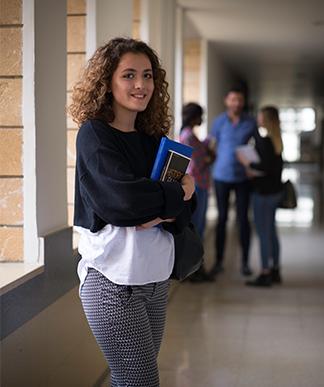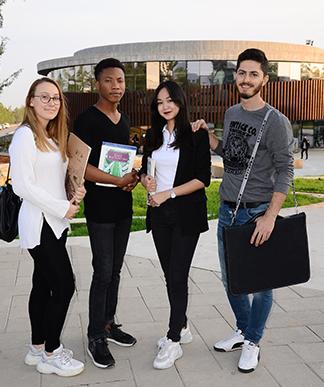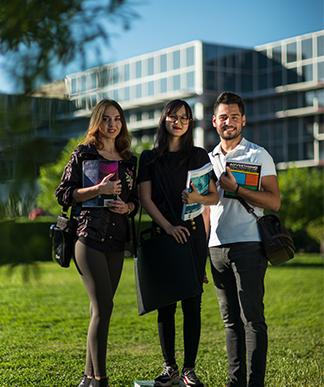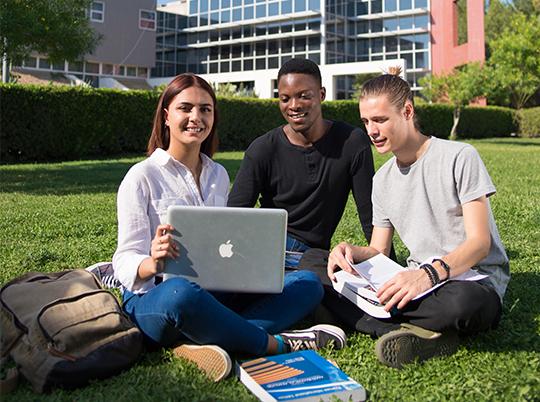


About the Program
Pharmacognosy is a science that studies the biological origin of pharmaceutical raw materials and excipients. Bio-pharmaceutical raw materials sourced from plants, animals, microorganisms and marine organisms are included in the research interests of the Department of Pharmacognosy.
Upon referring to the current drugs in use, it is observed that the biological materials are the source of an important part of their active ingredients. Pure bioactive molecules derived from nature can be used directly as drugs, or these compounds may be converted to a more effective form and have less side effects through semisynthetic or synthetic drug models. Natural resources, especially from plants, undoubtedly constitute a great potential for the discovery of new drugs. The main objectives of the program are to protect and promote health; utilize nature's rich diversity and development of chemical molecule drugs for the treatment of diseases; and learn the methods for the discovery of new molecules; The program also aims to raise graduates who can, for this purpose, apply the transfer of basic scientific methods in the planning and conducting of research; form sources for drug trials, compile information regarding their use in therapy cultures of people with interest in natural resources; separate active ingredients for the structural analysis and motility; conduct spectroscopic methods of chemical and biological assays of natural resources; utilize drug products in qualitative and quantitative analysis methods; and become qualified researchers in these areas.
Education Opportunities
Pharmacognosy M.Sc. program will focus on bioactive natural products; discovery of new molecules and artificial synthesis of semi-synthetic analogs of these molecules; their activity and / or bioavailability; higher level preparation of molecules with pharmaceutical potential to be used as medications; bioactive molecules in relation to molecular biology and genetics, cancer biology and pharmaceutical microbiology. It offers a multidisciplinary approach such that the research projects that will be carried out by this program will contribute to the publication of several research papers and presentations which will significantly help in the academic improvement of enrolled students.

Career Areas
Today, the field of Pharmacognosy has been showing a rapid development, where it is separated into branches operating in various scientific fields including science and technology innovation. Biotechnology, molecular biology and genetics and pharmacogenetics go in parallel with the progress in molecular pharmacology and toxicology, pharmacogenomics, genotoxicity, proteomics and the discovery of bioactive molecules from plants along with the metabolomics research and other multidisciplinary fields. Furthermore, there is an agenda in the 21st century to achieve advancements in personalized medicine and Cyprus International University Faculty of Pharmacy, Pharmacognosy program will also aid this goal by utilizing a multidisciplinary team.
Our graduates will have the opportunity to work in industrial or laboratory settings in addition to continuing their academic career.
Contact
Institute of Graduate Studies and Research
Graduate Sciences and Education Center, GE106
Tel: +90 392 671 1111 Extension: 2776
Institute E-mail: ciu-institute@ciu.edu.tr
Compulsory Courses
First Semester
RESEARCH METHODS
Course code
PRCO501Credit
3Theoretical
3Practical
0Ects
8ADVANCED PHARMACOGNOSY I
Course code
PRCO503Credit
3Theoretical
2Practical
2Ects
8AREA ELECTIVE
Course code
PRCOXX1Credit
3Theoretical
2Practical
2Ects
8AREA ELECTIVE
Course code
PRCOXX2Credit
3Theoretical
3Practical
0Ects
8Second Semester
THESIS
Course code
PRCO500Credit
0Theoretical
0Practical
0Ects
60ADVANCED PHARMACOGNOSY-II
Course code
PRCO504Credit
3Theoretical
2Practical
2Ects
8SEMINAR
Course code
PRCO590Credit
0Theoretical
0Practical
0Ects
4AREA ELECTIVE
Course code
PRCOXX3Credit
3Theoretical
2Practical
2Ects
8AREA ELECTIVE
Course code
PRCOXX4Credit
3Theoretical
3Practical
0Ects
8Elective Courses
NUTRACEUTICALS
Course code
PRCO507Credit
3Theoretical
3Practical
0Ects
8MORPHOLOGICAL AND MICROSCOPIC DEFINITIONS OF VEGETABLE DRUGS
Course code
PRCO512Credit
3Theoretical
3Practical
0Ects
8TOXIC AND HALLUCINOGENIC PLANTS
Course code
PRCO505Credit
3Theoretical
3Practical
0Ects
8POISONOUS PLANTS
Course code
PSCI628Credit
3Theoretical
3Practical
0Ects
8TECHIQUES IN MOLECULAR BIOENGINEERING
Course code
BIOE501Credit
3Theoretical
3Practical
0Ects
TECHNIQUES IN TISSUE CULTURE AND CELLULAR BIOENGINEERING
Course code
BIOE502Credit
3Theoretical
3Practical
0Ects
BIOTECHNOLOGY
Course code
BIOE535Credit
3Theoretical
3Practical
0Ects
CANCER BIOLOGY
Course code
BIOE628Credit
3Theoretical
3Practical
0Ects
PHYSIOLOGY FOR ENGINEERS
Course code
BIOE513Credit
3Theoretical
3Practical
0Ects
FERMENTATION MICROBIOLOGY
Course code
BIOE531Credit
3Theoretical
3Practical
0Ects
PLANT BIOTECHNOLOGY
Course code
PRCO511Credit
3Theoretical
3Practical
0Ects
8ORGANIC CHEMISTRY
Course code
CHEM104Credit
0Theoretical
0Practical
0Ects
HAZARDOUS AND TOXIC WASTES - TREATMENT AND CONTROL
Course code
ENVE505Credit
3Theoretical
3Practical
0Ects
BIOSENSORS
Course code
BIOE507Credit
3Theoretical
3Practical
0Ects
Students who are interested in pursuing advanced graduate studies leading to a master’s, doctoral degree, or professional doctorate degree for the Fall and Spring semesters every year. Applicants can directly apply online to our graduate programs using the application portal.
TRNC Applicants- Required documents:
- Bachelor’s Degree Diploma
- Bachelor’s Degree transcripts for each completed academic term/year.
- Documents to prove English proficiency for English language departments,
- Scanned copy of passport or identity card.
Click for detailed admission requirements information.
Students who are interested in pursuing advanced graduate studies leading to a master’s, doctoral degree, or professional doctorate degree for the Fall and Spring semesters every year. Applicants can directly apply online to our graduate programs using the application portal.
International Applicants- Required documents:
- Bachelor’s Degree Diploma
- Bachelor’s Degree transcripts for each completed academic term/year.
- Evidence of English Language competence: TOEFL (65 IBT) or IELTS (5.5). Students without these documents will take the CIU English proficiency exam on campus following arrival.
- Scanned copy of international passport/birth certificate
- CV
- Fully completed and signed CIU Rules and Regulations document (which can be downloaded during the online application)
Click for detailed admission requirements information.
Cyprus International University provides academic scholarships for its students as an incentive for success, with most students benefiting from 50%, 75% or 100% scholarships or discounted tuition fees. Click for more information.
Tuition Fees are determined at the beginning of each academic year. Candidate students who are entitled to enroll in CIU can learn their fees in line with the Tuition Fee Calculation system.